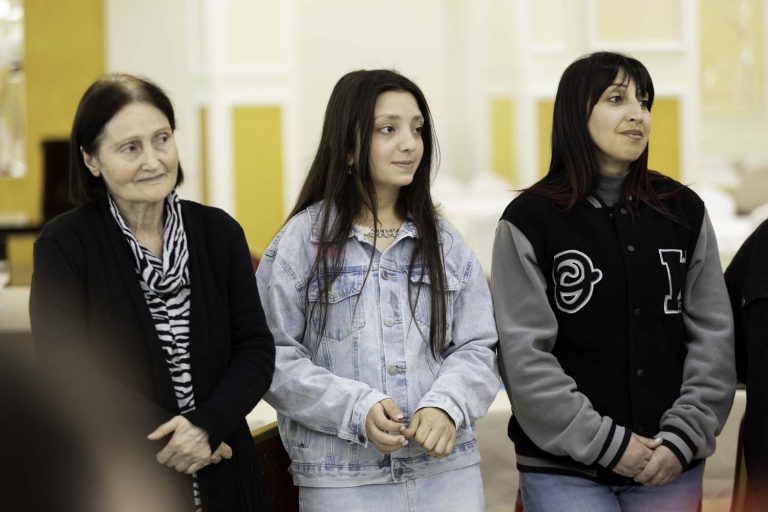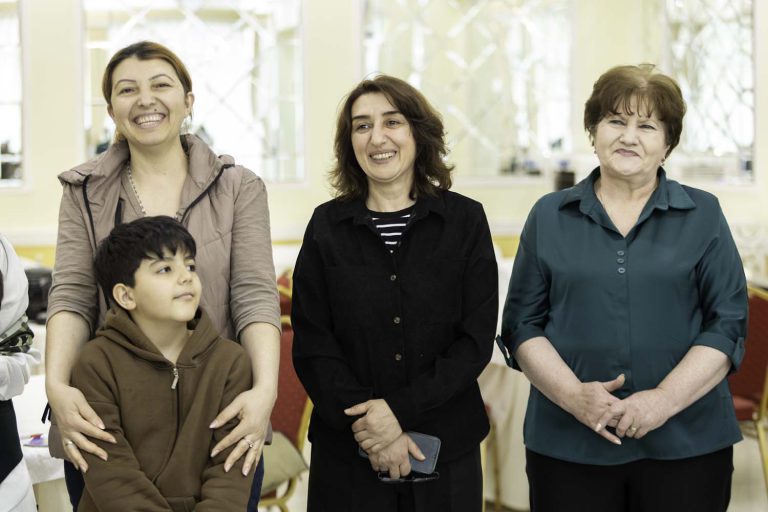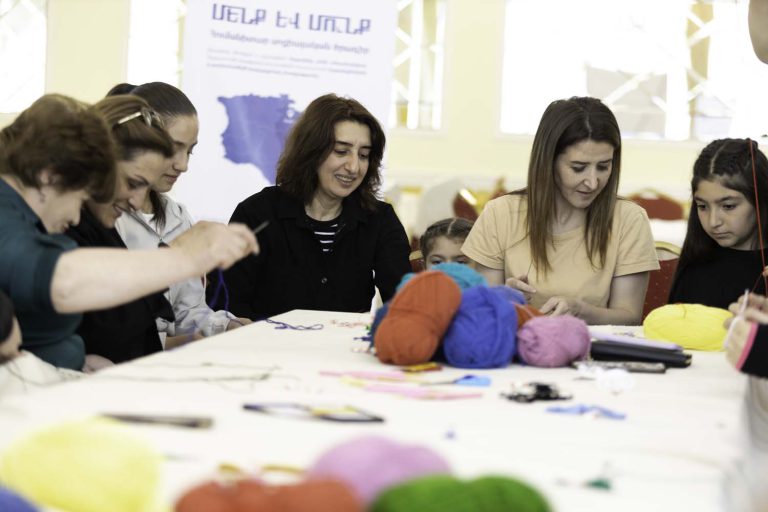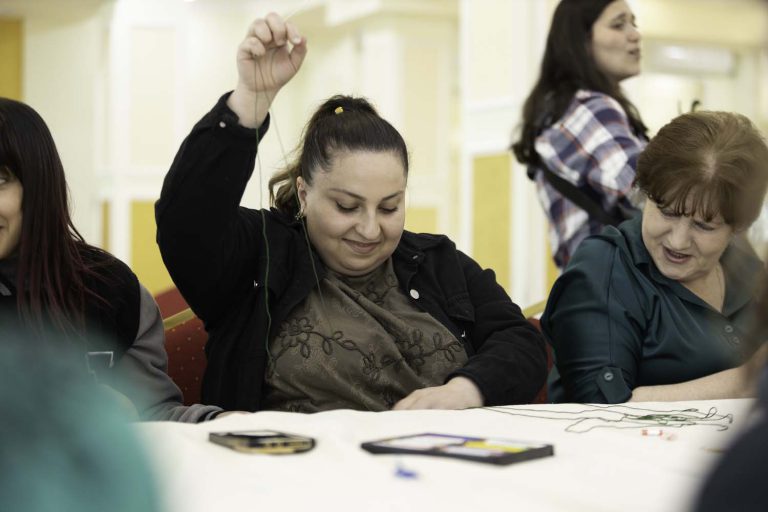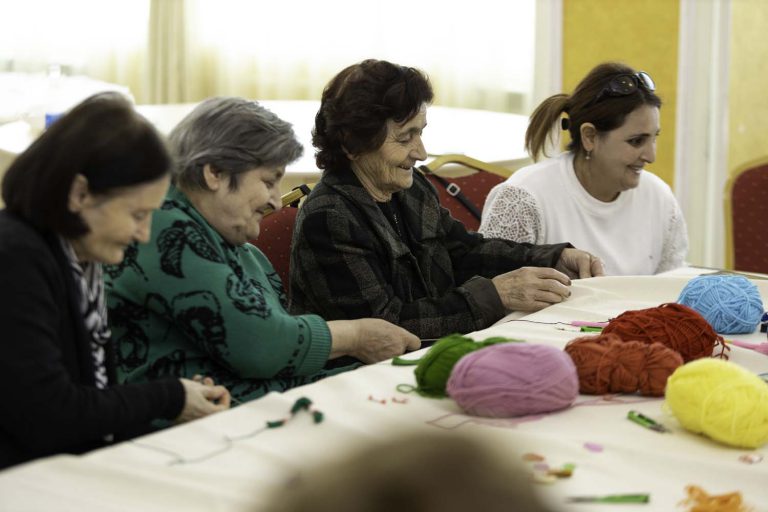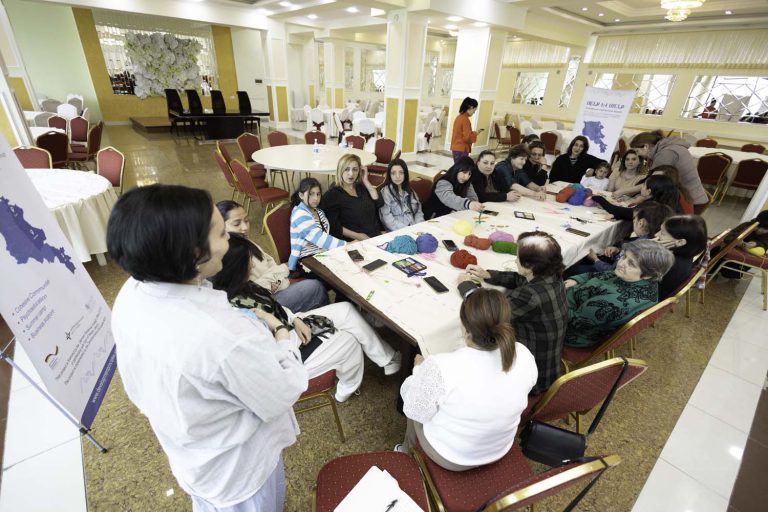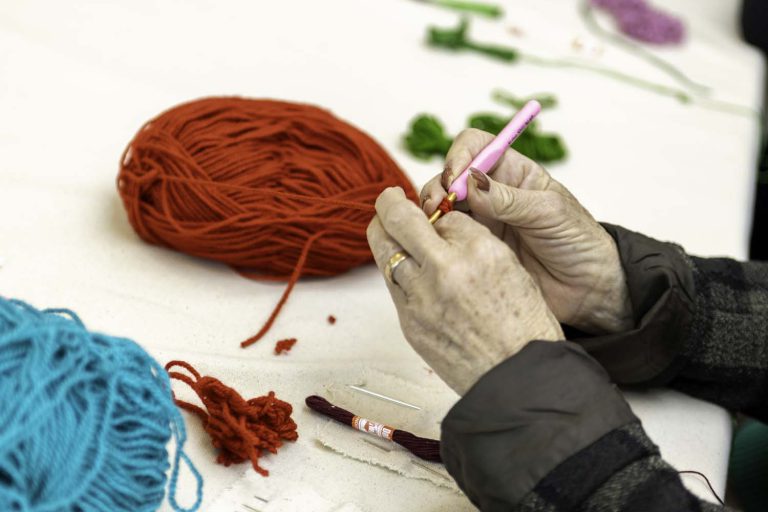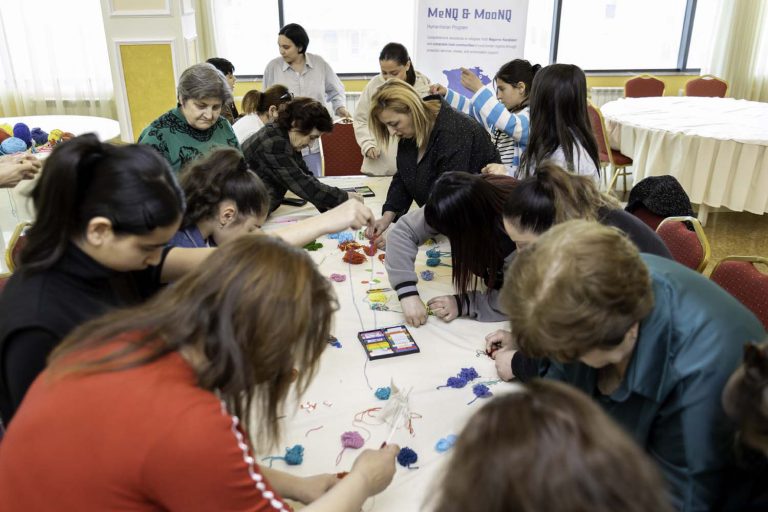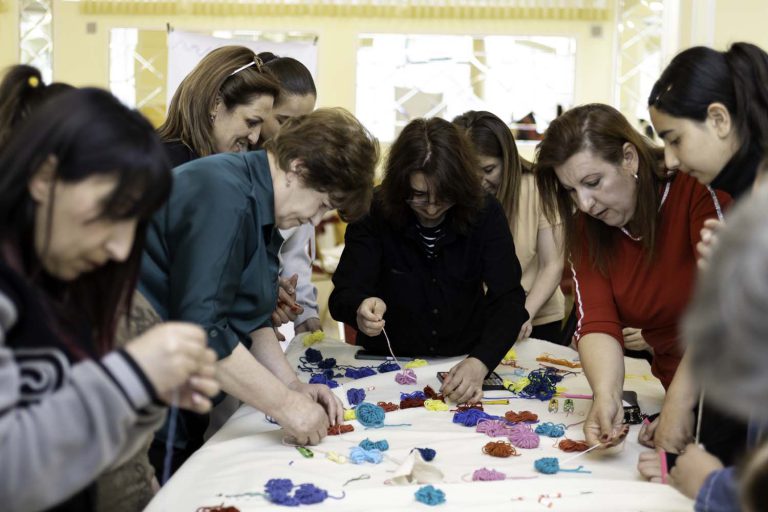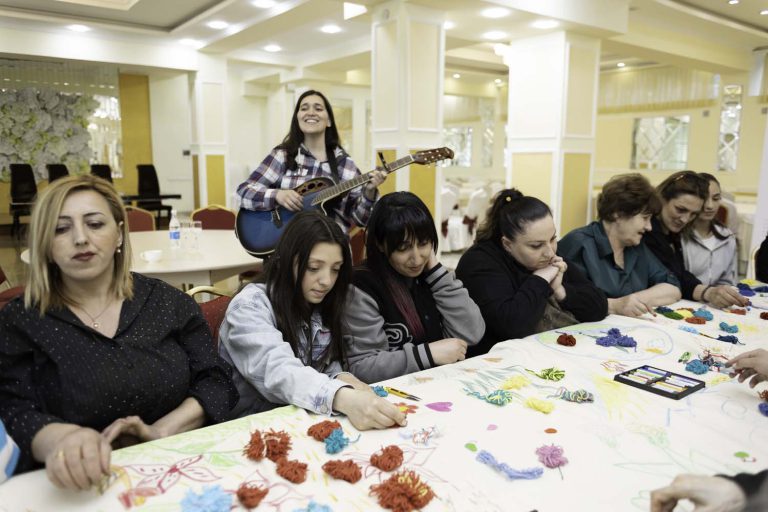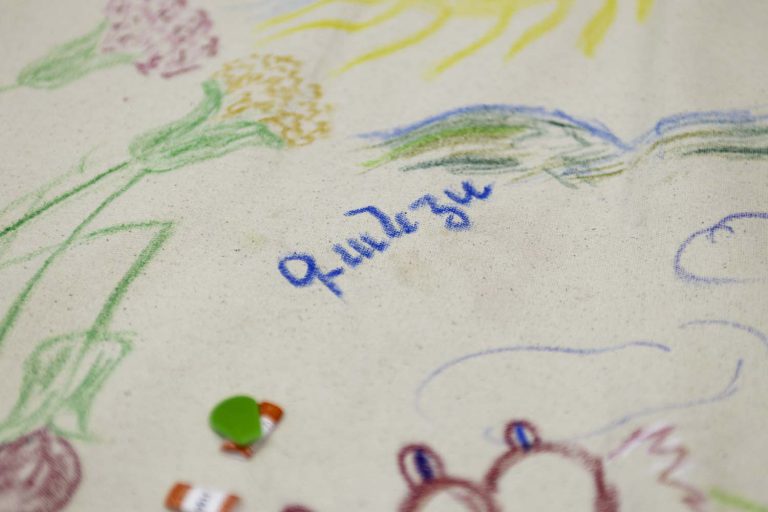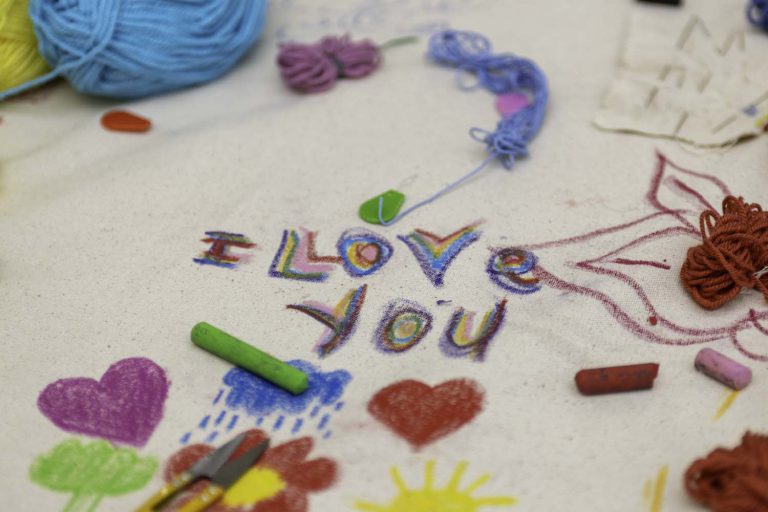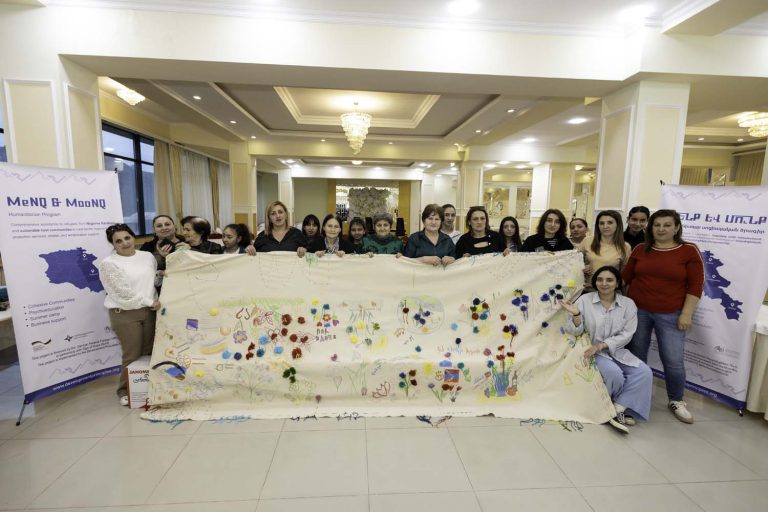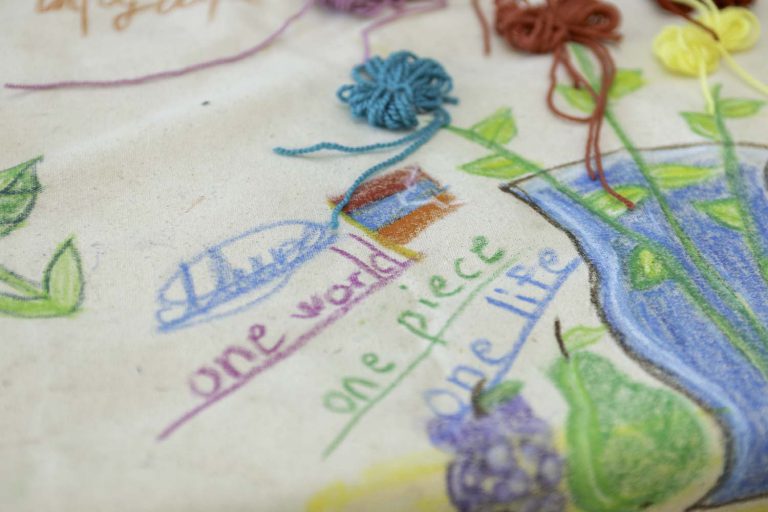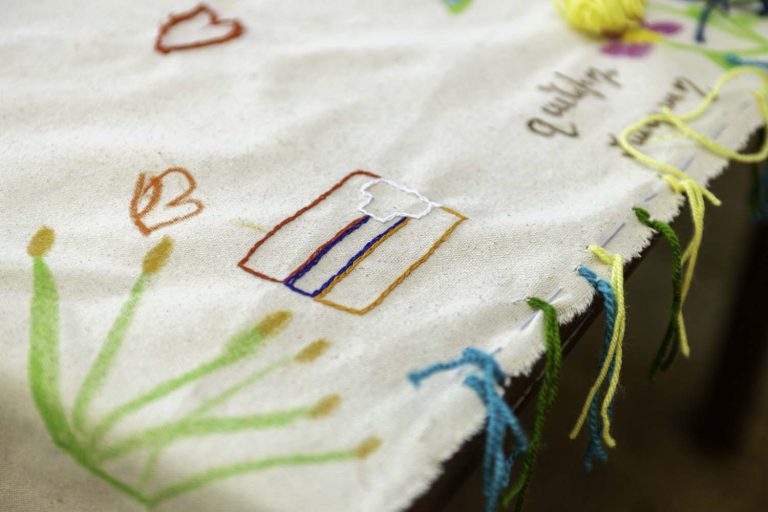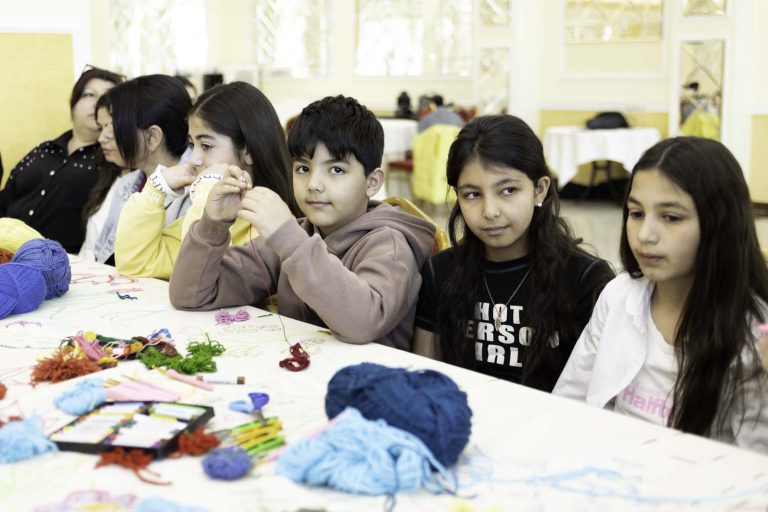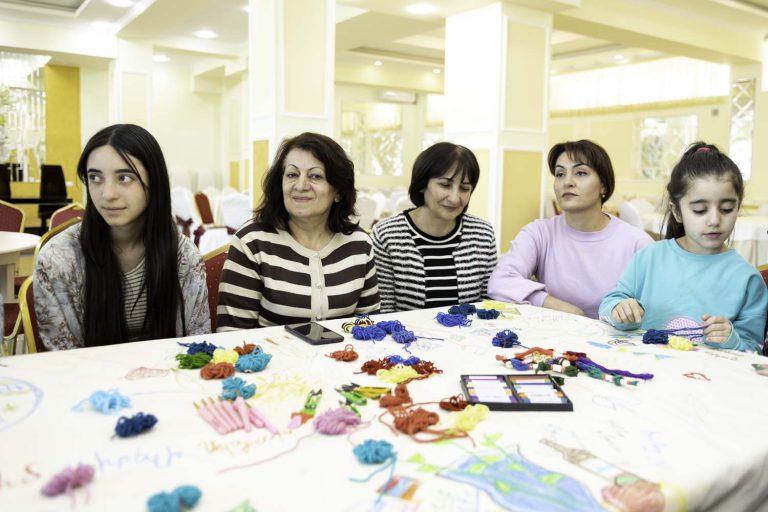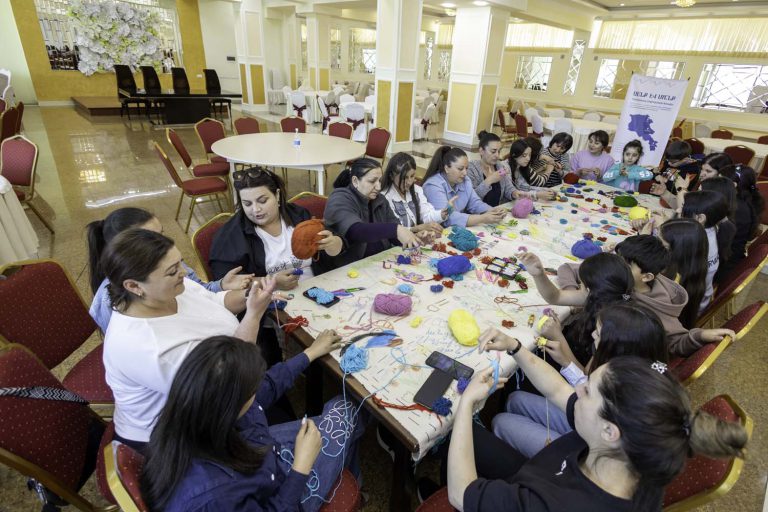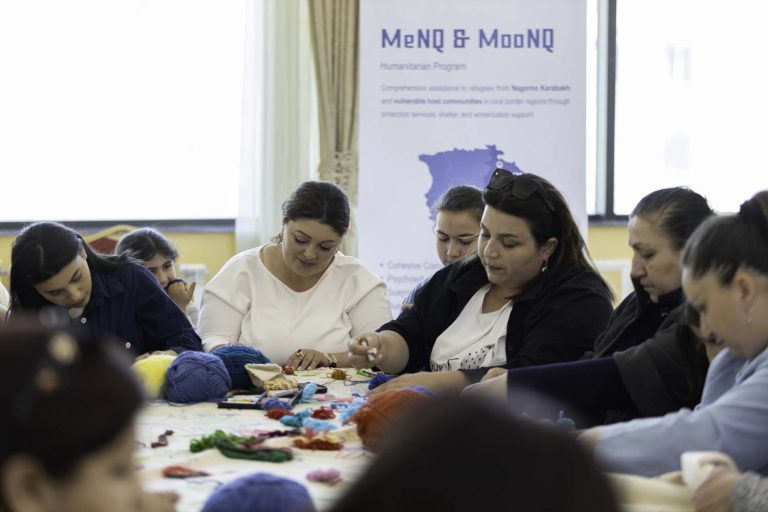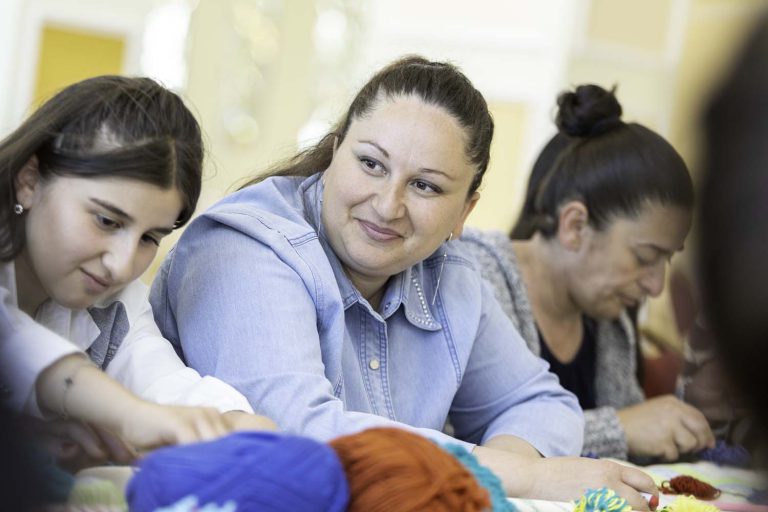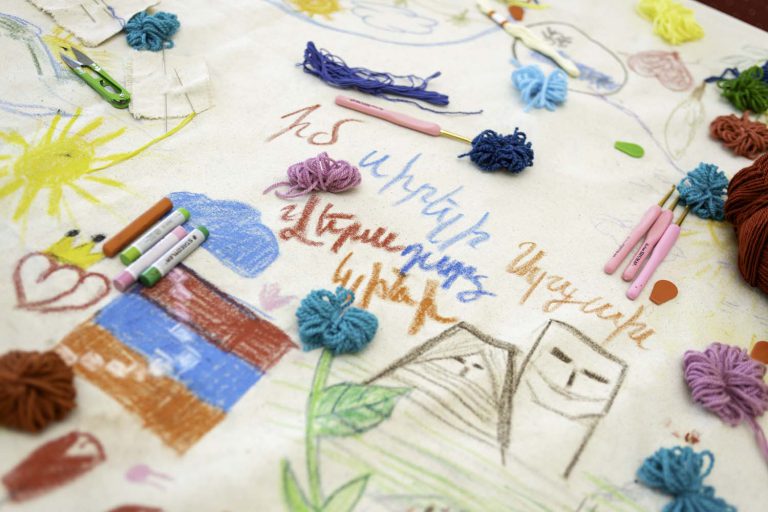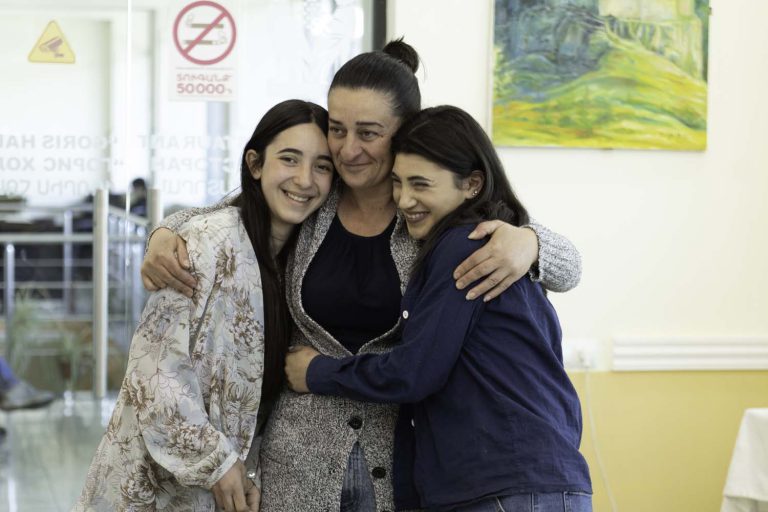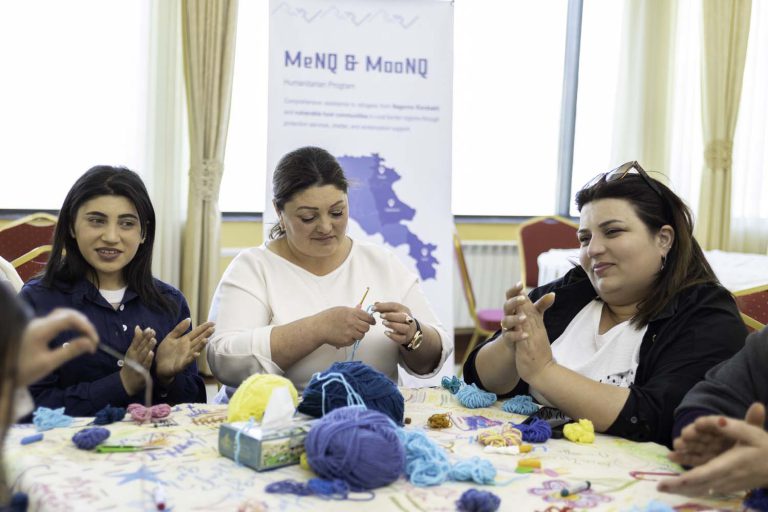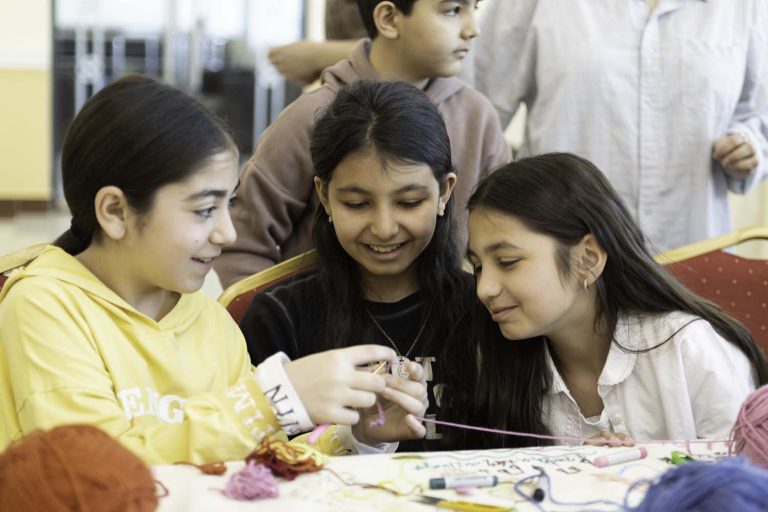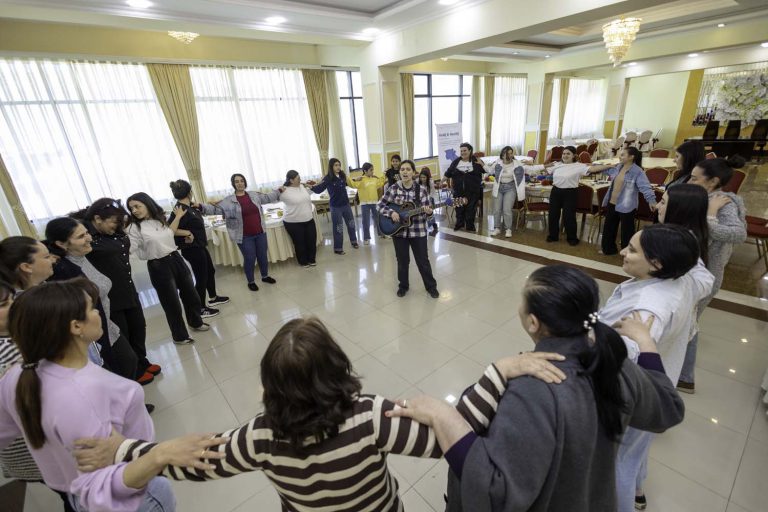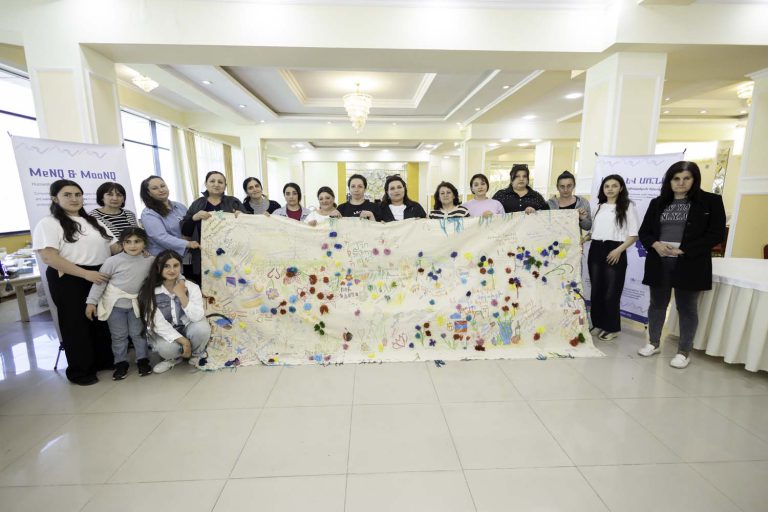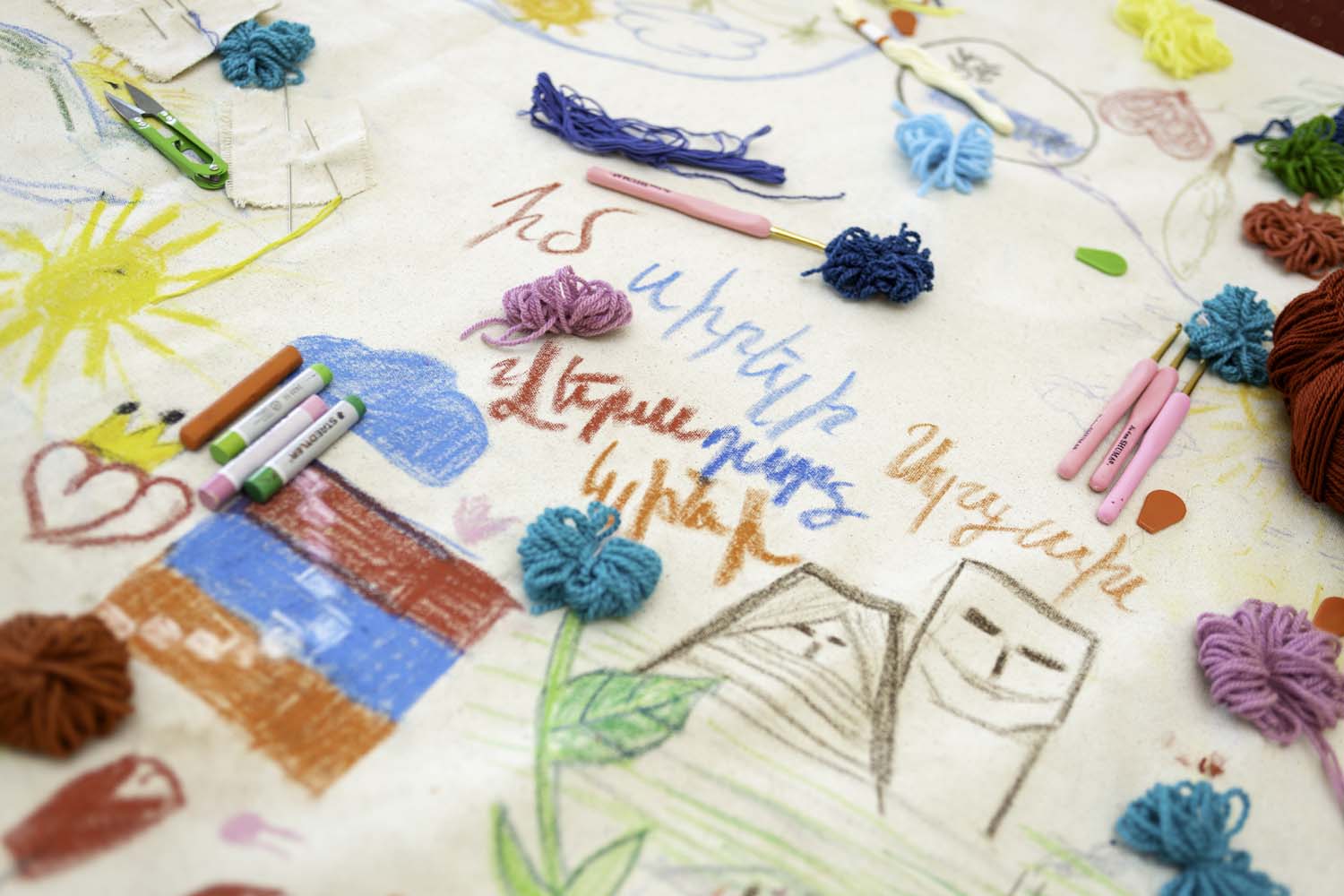The last two sessions of the “Menq & Moonq” humanitarian program’s crafts workshop were held for women from Artsakh who have resettled in the Syunik region. The event in Goris brought together 26 participants, along with their children, from towns and villages across the area.
The workshop began with introductions, as the women shared their personal stories and got to know one another. Narine Petrosyan, a mother of five from Martakert, explained how her family created a schedule to divide household tasks fairly. Many of the women turned out to be mothers of large families, and all were grateful for a rare opportunity to step away from daily responsibilities and immerse themselves in creativity and connection.
During the therapeutic session, the group worked together on a large fabric canvas—embroidering with colorful threads, drawing, and writing messages of hope and wishes for the future. The atmosphere was filled with reflection, as they recalled memories of their homes, gardens, and neighborhoods in Artsakh. The session was led by social-emotional learning expert Mariam Aleksanyan, who spoke about the power of staying grounded in the present and guided the group through calming breathing exercises designed to ease anxiety during stressful moments.
Armine Zorunts, now living in Khndzoresk, said that after crossing the Hakari Bridge during the evacuation, their warm welcome in Goris made them feel right at home. “We didn’t even consider relocating to another city. I’ve never once regretted our decision to stay here. People are kind and genuinely supportive—it’s something all of us have felt. That’s why so many families from Artsakh have resettled in Syunik.”
Zoya Balayan, who moved from Stepanakert to Goris, shared that despite falling in love with the city and its people, she still dreams of going back. “I keep reassuring my relatives that things will get better. This is just a temporary chapter in our lives. I can’t imagine enduring this without that hope.”
One of the final evacuees from the Hekimyan neighborhood in Stepanakert, elderly participant Mrs. Emma, recalled how difficult it was to leave. “There were only two families left. My son had to drag me out of our home. We’re now living in the ‘Goris’ hotel. My children are adjusting, and they’ve found jobs, but it’s still very hard for me. I spend most of my time looking at old photos and videos of our neighborhood. They’ve changed everything, but I believe Artsakh won’t remain empty of its people for long.”
Throughout the workshop, musician Tamara Atanesyan of the “Shushiki” band performed traditional Armenian songs like “Msho Dashter,” “Lorik,” and “Trchei Mtqov Tun.” Many of the women joined in, often overwhelmed with emotion as memories surfaced.
At the end of the two-day gathering, each participant received a gift—a sewing machine and school supplies for their children. For many, already skilled in handcrafts, these gifts offered not just encouragement, but a practical way to ease their household burdens and continue building a new life.
The Menq & Moonq program is financed by the German Federal Foreign Office (GFFO) in partnership with Sign of Hope (SoH). The project is implemented by the Development Principles NGO.
